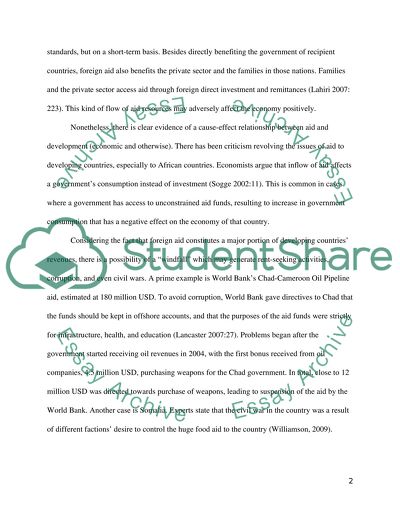Cite this document
(“Foreign Aid and Dictatorship Research Paper Example | Topics and Well Written Essays - 1500 words”, n.d.)
Retrieved from https://studentshare.org/history/1439165-foreign-aid-and-dictatorship
Retrieved from https://studentshare.org/history/1439165-foreign-aid-and-dictatorship
(Foreign Aid and Dictatorship Research Paper Example | Topics and Well Written Essays - 1500 Words)
https://studentshare.org/history/1439165-foreign-aid-and-dictatorship.
https://studentshare.org/history/1439165-foreign-aid-and-dictatorship.
“Foreign Aid and Dictatorship Research Paper Example | Topics and Well Written Essays - 1500 Words”, n.d. https://studentshare.org/history/1439165-foreign-aid-and-dictatorship.


